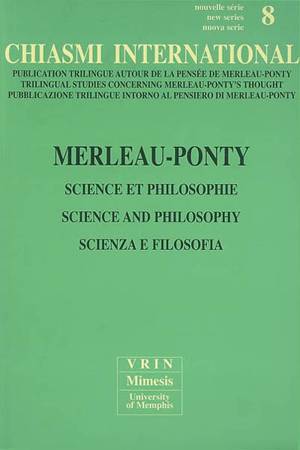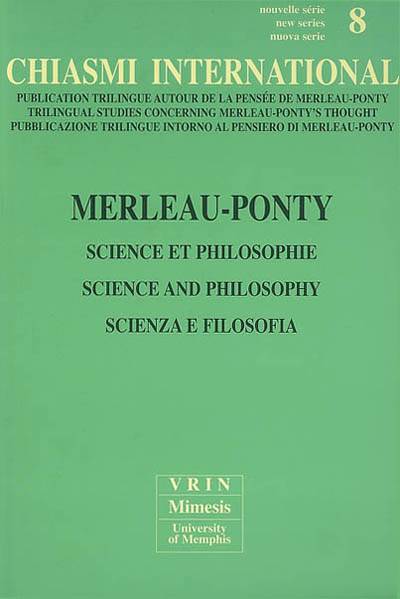
- Afhalen na 1 uur in een winkel met voorraad
- Gratis thuislevering in België vanaf € 30
- Ruim aanbod met 7 miljoen producten
- Afhalen na 1 uur in een winkel met voorraad
- Gratis thuislevering in België vanaf € 30
- Ruim aanbod met 7 miljoen producten
Zoeken
Merleau-Ponty
science et philosophie = science and philosophy = scienza e folisofia
Chiasmi International
€ 21,00
+ 42 punten
Omschrijving
Of all Husserl's successors, Merleau-Ponty is certainly the one who was the most concerned about remaining in contact with the sciences as they are practiced and of not separating philosophical reflection from a meditation on their ontological signification. Within this dialogue, psychology plays a privileged role, as in The Structure of Behavior, since it is starting from the results of a Gestalt inspired psychology that Merleau-Ponty reforms the idea of the cogito. As psychology takes the subject of reflection itself as its object, it confronts the problem of the relationship between the transcendental subject and the empirical subject, making it possible to establish the unity of the soul and of the body required by the phenomenology of perception. This settling of accounts between Merleau-Ponty and the sciences would not have been complete without a confrontation between phenomenological psychology and the enactive emergentism of Fracisco Varela. TEXTES DE / TEXTS BY / TESTI DI: Cecilia Antolini, Renaud Barbaras, Matteo Bonazzi, Susan Bredlau, Alexandre Cléret, Patrick Flack, Kirsten Jacobson, Kym Maclaren, Mersia Menin, David Morris, Leandro Neves Cardim, Mario Teodoro Ramírez, Claudio Rozzoni, John Russon, Marcus Sacrini A. Ferraz, Davide Scarso, Maria Talero, Jessica Wiskus.
Specificaties
Betrokkenen
- Auteur(s):
- Uitgeverij:
Inhoud
- Aantal bladzijden:
- 364
- Taal:
- Italiaans, Frans, Engels
- Reeks:
- Reeksnummer:
- nr. 8
Eigenschappen
- Productcode (EAN):
- 9788884835024
- Verschijningsdatum:
- 16/11/2007
- Uitvoering:
- Paperback
- Formaat:
- Trade paperback (VS)
- Afmetingen:
- 140 mm x 210 mm
- Gewicht:
- 390 g

Alleen bij Standaard Boekhandel
+ 42 punten op je klantenkaart van Standaard Boekhandel
Beoordelingen
We publiceren alleen reviews die voldoen aan de voorwaarden voor reviews. Bekijk onze voorwaarden voor reviews.











